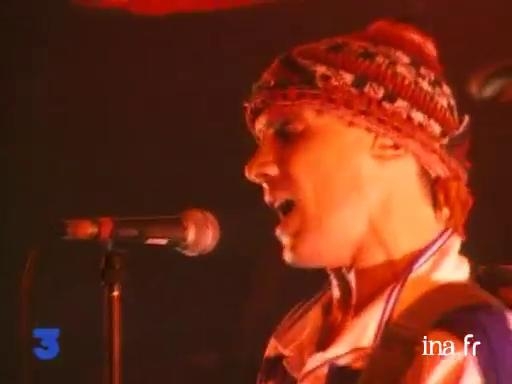Portrait of Manu Chao

Information
The day after the Manu Chao concert at La Halle de la Villette in Paris, portrait of a political musician with global success, a symbol of anti-globalisation. Commentary over images by Manu Chao in Mexico at Tijuana and an extract from the music video from Me gustas tu mixed with comments from the audience and interviews with Manu Chao, first in Mexico to talk about the sounds that he's created, then in Gênes in July 2001 where he denounces a certain economic dictatorship of the moment.
- Europe > France > Ile-de-France > Paris
- Europe > Italy
- South America > Brazil
Context
Born the 21st of June 1961 to Spanish parents, Manu Chao - having just graduated - threw himself into music, participating actively in a multitude of groups renewing the French rock scene at the beginning of the 80s. A mixed influence of punk, rockabilly, reggae and latin music, Chao accompanied by his brother Antoine, founded Mano Negra in 1987 who, with a handful of records (Patchanka in 1988, King of Bongo in 1991 and Casa Babylon in 1994) impose themselves as the spearhead of alternative French rock.
It was with the breakup of the group in 1994 that Manu Chao decided to launch a solo career. At the end of a long trip around the world (Africa and South America), he released in 1998 Clandestino, an album in the form of a logbook placed under the sign of hybridisation and crossbreeding of styles. This music both intimate and open for all cultures of the world found its audience (the album sold over 3 million copies) and Chao became not only an internationally recognized artist but, progressively more implicated in the alter-globalist movement, a sort of counterculture icon, notably in South America.
In 2001 Chao released the album Proxima Estacion: Esperanza, the natural progression of Clandestino and headed out on the roads of the whole world with his group Radio Bemba. His last album La Radiolina, a lot more rock and electric, seems to tie in with the Mano Negra spirit once again.


